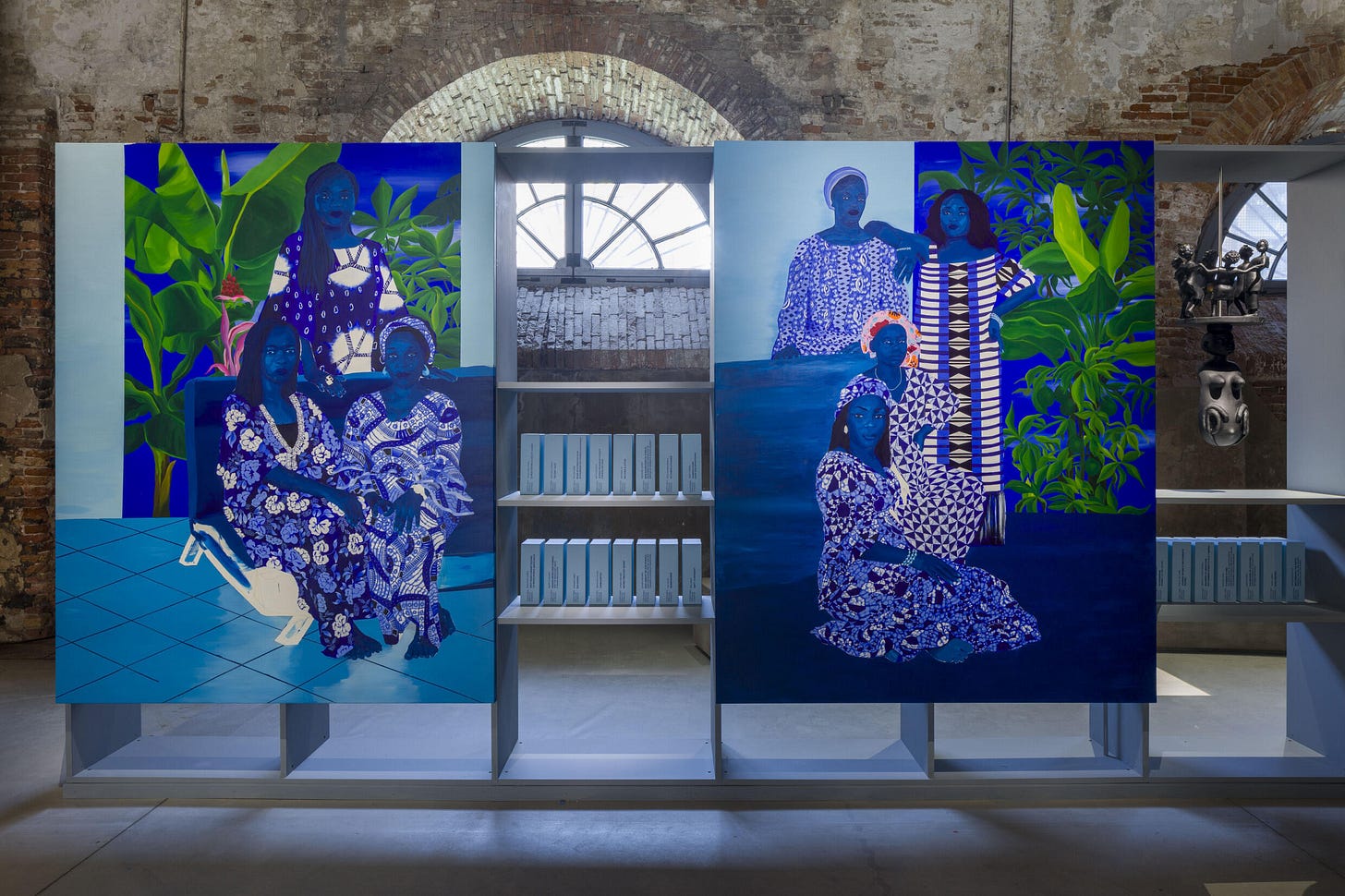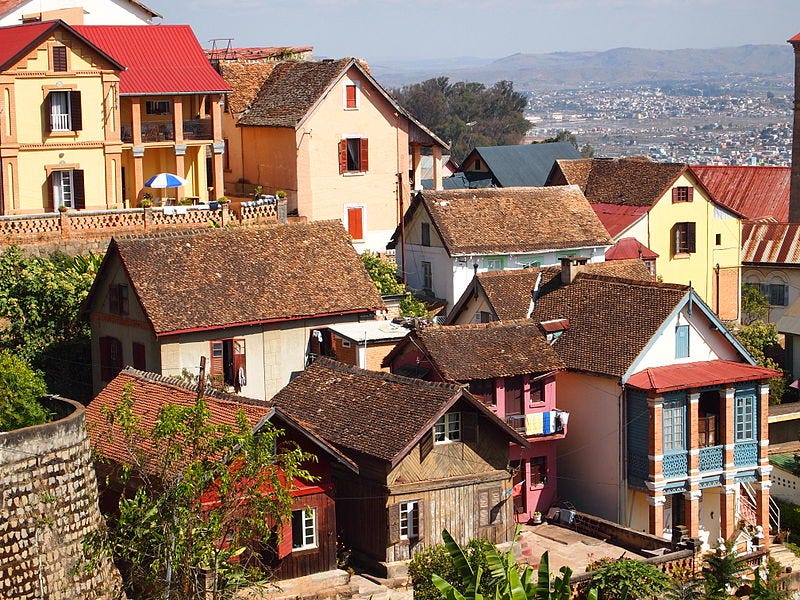🔅 Benin at La Biennale: Shattering Clichés and Empowering Women
Portugal's President Suggests Reparations, World Bank Suspends Tanzania Funding
Photo of the Day
Spotlight Stories
Benin's Premiere Pavilion at La Biennale de Venezia: Shattering Clichés and Empowering Women

In the world of contemporary art, inclusion in La Biennale de Venezia is a symbol of recognition and legitimacy that artists and curators dream of. But for Benin's premiere pavilion, led by the visionary curator Azu Nwagbogu, it's not just about basking in the limelight – it's about collapsing conventions and expectations.
Benin, the Francophone West African nation known for its voodoo roots and historical ties to the Atlantic slave trade, has often been reduced to clichés and commodified tropes.
But Nwagbogu and his team are on a mission to change that.
Inspired by conversations with traditional rulers (all men, by the way) who shared the idea that the world's problems stem from the displacement of women from positions of power, Nwagbogu decided to court the cliché and conceive a biennial exhibition about Beninoise feminism. Talk about a plot twist!

The pavilion introduces the concept of "rematriation" – a notion associated with Indigenous women-led communities worldwide – through series like Traces of a Queen by Ishola Akpo (2024) and Night Birds by Moufouli Bello (2022), which celebrate women as the spiritual and social centre.
With Nwagbogu and his team at the helm, Venice is in for a thrilling ride that shatters clichés, empowers women, and forces you to confront the past while looking towards a brighter future.
But Benin's grand debut at the Biennale is just the tip of the iceberg when it comes to the country's ambitious plans to boost its cultural clout.
Benin is going all-in on the arts, with a strategy that includes building four new museums, a cultural quarter in the largest city, Cotonou, and investing in arts education.

One of the most significant projects is the Maison de la Mémoire et de l'Esclavage in Ouidah, which will explore the history of slavery from African, American, Caribbean, and European perspectives. It's a heavy topic, but one that's crucial to understanding Benin's past and shaping its future.
The government is putting its money where its mouth is, with plans to invest €250 million until 2026. The goal is to make culture the economy's second pillar after agriculture.
But it's not just about the money – it's about fostering a sense of national identity and fighting poverty by creating jobs in the cultural sector. As Babalola Jean-Michel Abimbola, the country's minister of culture, puts it, "It's a fight against poverty, allowing us to create jobs and build a better economy." Preach, Abimbola!
You can read more on the new cultural quarter in Cotonou and a new design school as the crown jewels of the government's plans, here.
With its bold investments in culture and education, this small West African country is poised to make a big splash on the global stage. Who knows – maybe one day we'll all be lining up to see the latest exhibition at the Musée d'Art Contemporain de Cotonou. A cultural connoisseur can dream, right?
Portugal's President Suggests Reparations
Portugal's President Marcelo Rebelo de Sousa has acknowledged the country's dark past, taking "full responsibility" for the crimes committed during the transatlantic slave trade and colonial era. Portugal trafficked nearly 6 million Africans, more than any other European nation, but has long failed to confront this history to the extent that little is even taught about the slave trade in schools.
The President's admission comes as the idea of reparations for slavery gains momentum worldwide.
Rebelo de Sousa suggested that there may be a need for reparations, saying, "We have to pay the costs. Are there actions that were not punished and those responsible were not arrested? Are there goods that were looted and not returned? Let's see how we can repair this."
While the President had previously said Portugal should apologize for its past, he now believes that acknowledging it and taking responsibility is more important than a simple apology. "Apologising is the easy part," he quipped.
Activists argue that reparations and public policies to combat the inequalities caused by Portugal's past, including systemic racism, are essential. It remains to be seen how Portugal will navigate this complex issue, but the President's bold statement is a significant step in confronting the nation's troubling history head-on.
World Bank Suspends Funding for Tanzania National Park Expansion Amid Shocking Allegations

The World Bank has hit the brakes on new disbursements from a $150 million fund meant to expand Tanzania's Ruaha National Park. Why? Well, it turns out that the park's rangers have been accused of some pretty serious stuff, including extrajudicial killings, enforced disappearances, evictions, torture, and cattle seizures against local villagers.
The allegations came from two anonymous complainants through the World Bank's independent complaints mechanism.
The Bank is "deeply concerned" about the allegations and has decided to suspend further disbursement of funds immediately. The Tanzanian government denies the allegations but says it's investigating to see if any staff misconduct occurred.
The government maintains that expanding the tourism sector is key to economic development and that it has provided fair compensation to people evicted from their homes. But with $25 million of the loan now on hold, it looks like the World Bank isn't taking any chances until the allegations are thoroughly investigated.
Food for Thought
“A child is a child of everyone."
— Sudanese Proverb






